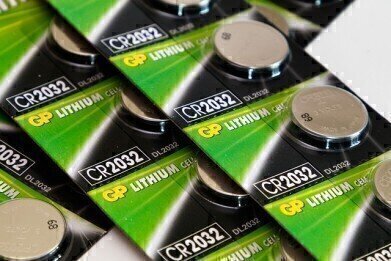Safety
How Do Lithium Batteries Store Electricity?
Aug 24 2021
From powering everyday devices like smartphones and handheld electronics, to next-generation military and aerospace applications, lithium batteries have a huge range of uses. Want to know more about the power sources? Read on to find out more about how lithium ion batteries store and release electricity.
The power of reversable reactions
While some batteries are rendered useless when depleted, lithium batteries feature technology that allows them to be recharged. American chemist Gilbert Lewis was an early pioneer of lithium battery technology, though the product didn’t become a mainstay until the early 1990s. The main difference between regular batteries and lithium batteries is the capacity to support reversed chemical reactions. The chemicals used to manufacture lithium batteries can undergo reactions to release power, then reverse the process to absorb power when being recharged.
Cells, electrodes and electrolytes
Lithium batteries are made up of one or more power-generating cells. For example, a single AA battery is made up of one cell while car batteries usually contain six or more cells. Each cell contains a positive electrode (indicated by the + sign) and a negative electrode (indicated by the - sign) divided by an electrolyte that generates power. The positive electrode is generally made from lithium-cobalt oxide (LiCoO2), though some newer batteries use lithium iron phosphate (LiFePO4). Carbon (graphite) is used to manufacture the negative electrode.
When being charged, the positive electrode releases lithium ions which pass through the electrolyte to the negative electrode. When the battery is in use, the negative electrode releases these lithium ions and send them back to the positive electrode. This is what generates power and makes rechargeable lithium batteries so useful for everyday devices like smartphones and electric cars. When all the ions have been drained from the negative electrode the battery is depleted and needs to be recharged.
The dangers of lithium batteries
While lithium technology is widely used and offer some significant advantages over other battery types, they’re also plagued by serious safety risks. Self-combustion is a major issue, with tech giants like Samsung, Dell and Sony all encountering problems with lithium batteries. This includes multiple incidents where lithium battery powered devices exploded in airline cabins, posing a threat to passengers and crew.
These types of safety concerns have prompted many experts to champion nickel metal hydride batteries as a safer alternative to lithium technology. Hans-Jörg Hübner, a representative from British-owned company GFG Gas Detection UK Ltd explored the topic further in ‘Risks and side effects: The underestimated dangers of lithium-ion batteries’.
Digital Edition
PIN 25.1 Feb/March
March 2024
In This Edition Safety - The technology behind the ION Science Tiger XT - Safety with ammonia and LOHCs as hydrogen carriers Analytical Instrumentation - Discussion on new tribology te...
View all digital editions
Events
Apr 24 2024 Mumbai, India
Apr 24 2024 Jakarta, Indonesia
Apr 28 2024 Montreal, Quebec, Canada
Apr 30 2024 Birmingham, UK
May 03 2024 Seoul, South Korea


.jpg)















